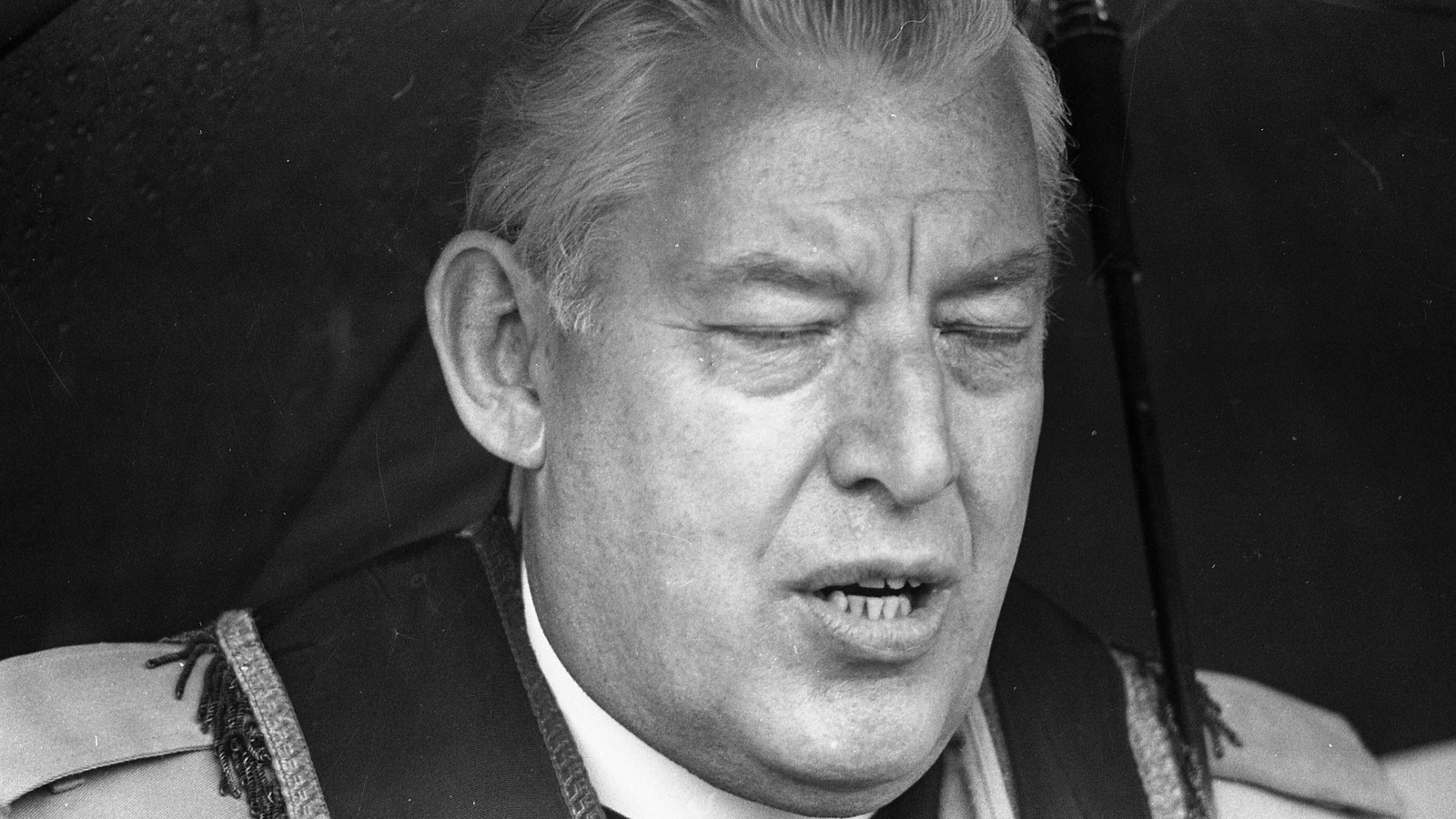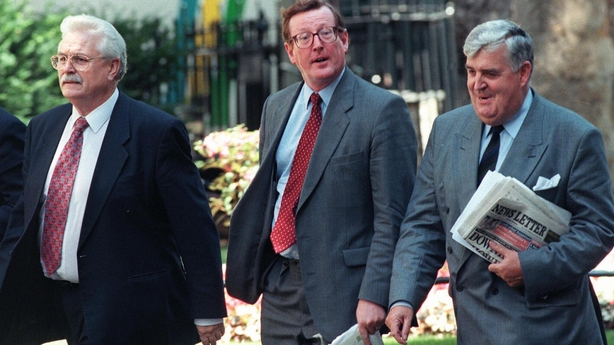‘First day briefing material’ for incoming politicians

Which Northern politician was “difficult to get to know and even less easy to like”? What party’s leader was “a complex character, capable of dark moods and depression”? And who was “a loose cannon” with “a reputation for speaking first and thinking later”?
The answers are contained in documents prepared by British civil servants anticipating a change of government in 1997, which appear to have been passed on to Irish officials, because they ended up in the files of the Department of Foreign Affairs, released this week by the National Archives.
The “First Day briefing material” was drawn up in the Northern Ireland Office and offers analysis of the political situation facing Mo Mowlam and her ministerial team after Labour’s election victory that summer.
The documents also contain personality profiles of the leading politicians who would soon negotiate the Good Friday Agreement.
Ulster Unionist Party leader David Trimble is described as “articulate, businesslike and intelligent”, but “an instinctive hard-liner” who “has not been able to provide strong and coherent leadership”.

While acknowledging his “quick and disciplined mind”, the briefing says Trimble “can be arrogant and abrasive in his personal contacts, and the anger which fuels his presentation of the Unionist case can occasionally spill over into displays of petulance. Despite his intellect, he is capable of reverting to visceral politics if the mood takes him”.
Trimble’s deputy leader, John Taylor, is described as “a complex figure, found by many to be arrogant and blustering”, with suspicions that he “may merely be biding his time until Trimble is seen to falter and he can seize the opportunity to depose him”.
Another senior UUP figure, Ken Maginnis, is “large, friendly, open and garrulous… in many ways the most attractive (in personal terms) of the UUP upper echelon. Something of a loose cannon in Party terms, he has a reputation for speaking first and thinking later. A rambling and unfocussed speaker”.
DUP leader Ian Paisley “can be bullying, scheming or charming as the occasion requires. Despite his essential puritanism, he is not a cold personality; he has a sense of humour and can display personal kindness”.
His deputy, Peter Robinson, is “intelligent, sharp and quick; but as a person is cold, calculating, and although personable on occasions, is difficult to get to know and even less easy to like”.
SDLP leader John Hume is described as “a complex character, capable of dark moods and depression when he feels things are not going right. He is often worried about his health”.
His deputy, Seamus Mallon, while “very charming”, is “vigilant in spotting lapses of behaviour by the security forces and rigorous in his criticism of aspects of security policy which he considers counter-productive. But he is a fair critic and does not go out of his way to be unnecessarily difficult.” The assessment adds, with considerable understatement, that Mallon’s “relations with Hume are not always the best”.
Assessments of the Sinn Féin leadership are not included in the documents released in the National Archives.
By David McCullagh and Shane McElhatton
[Based on documents in 2022/45/425]





